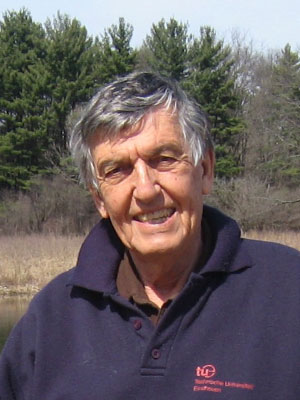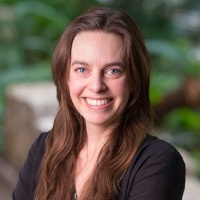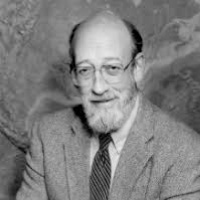What’s in a name? At the Nelson Institute for Environmental Studies at the University of Wisconsin–Madison, it’s a powerful way to honor the past and inspire the future. This year, the energy analysis and policy program is renaming its endowed professorship and scholarship to recognize Wes Foell and John Steinhart, two visionary founders who helped shape the program.

The energy analysis and policy (EAP) program is a graduate certificate program open to all UW–Madison graduate students. One of the oldest graduate energy programs in the world, it has steadily grown in student enthusiasm and alumni engagement. In 2022, EAP became the largest and fastest-growing graduate certificate program at UW–Madison.
To celebrate leadership in energy and policy, Nelson Institute alumnus Jeff Rudd suggested changing the program’s named professorship from his namesake — the Jeff Rudd and Jeanne Bissell Professor of Energy Analysis and Policy — to the Wes Foell Professor of Energy Analysis and Policy.
Foell, a pioneering figure in the energy field, was one of the cofounders of the EAP program in 1980. Prior to joining the university, he had an early scientific interest in energy technologies and conducted nuclear power plant research in Germany. Arriving to UW–Madison as a nuclear engineering faculty member, he was introduced to thinking about ecological problems and began collaborating with faculty from other disciplines. Through these collaborations, he developed the UW energy systems and policy research program, a campuswide policy research and outreach initiative. His efforts in both the College of Engineering and the Nelson Institute helped establish EAP’s interdisciplinary foundation, leading to decades of real-world impact.
The inaugural Wes Foell Professor of Energy Analysis and Policy will be Morgan Edwards. The new chair of EAP, Edwards is a faculty member in the La Follette School of Public Affairs and holds affiliations with the Nelson Institute and its Center for Sustainability and the Global Environment. The professorship includes flexible funding to support research, outreach, and programming. “I’m honored to step into this role and deeply grateful to Jeff and Wes for their generous support,” says Edwards. “I look forward to continuing our work building an inclusive, forward-looking EAP community.”

“When intellectual progress and practical breakthroughs occur in wide-ranging fields such as philosophy, mathematics, engineering, and physics, those credited with the accomplishment often say they were able to do so because they ‘stood on the shoulders of giants,’” says Rudd, who has served as a strategic advisor to the EAP program and board of visitor member to the Nelson Institute. “Wes Foell is one of the ‘giants’ in the energy field. He deserves this recognition and much more. Professor Edwards is an excellent choice to lead EAP as the Wes Foell Professor.”
In addition to cofounding EAP, Foell has also been an active supporter of the program, supporting nearly 50 students through the Wes and Ankie Foell Scholarships. But, having been inspired by Rudd’s gesture, Foell is dropping his name to honor other EAP leaders. The scholarships will be periodically renamed to honor EAP alumni and faculty, creating a living tradition that celebrates the community’s past, present, and future. The first honoree is one of the key EAP cofounders, John Steinhart.
A respected professor and founding faculty member of the Nelson Institute, Steinhart was widely known for his visionary insight, mentorship, and vibrant personality. He inspired a generation of EAP students to devote their careers to energy issues.

“Individuals are important in innovation as are public attitudes and movements,” says Foell. “I was fortunate to join UW at a propitious time, when the symbiosis between energy and environmental issues first entered public consciousness. In my personal case, I give great credit to Wisconsin Senator Gaylord Nelson who conceived of the Earth Day celebration. The first Earth Day in Madison in 1970, a ten-day festivity, was one of the most inspirational events of my early professional career. Since that period in the 70s, dozens — if not hundreds — of students and faculty have been instrumental in creating today’s EAP program. I believe they deserve recognition for their significant contributions.”
This year, the EAP program will award 20 John Steinhart Scholarships to support graduate students earning the certificate.
“We are thrilled to support this new tradition of renaming our endowed professorships and scholarships,” says Tracey Holloway, outgoing program chair. “There are so many extraordinary individuals who have helped make EAP what it is today. This is a meaningful way to honor their impact and inspire future leaders.”